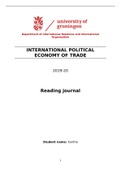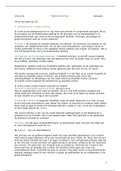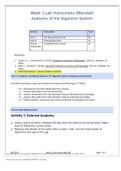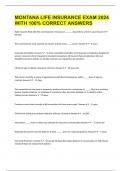College aantekeningen
Learning Journal International Political Economy of Trade
- Instelling
- Rijksuniversiteit Groningen (RuG)
Learning Journal for International Political Economy of Trade. It concerns the seminar assignments and its answers as a preparation for the exam.
[Meer zien]









